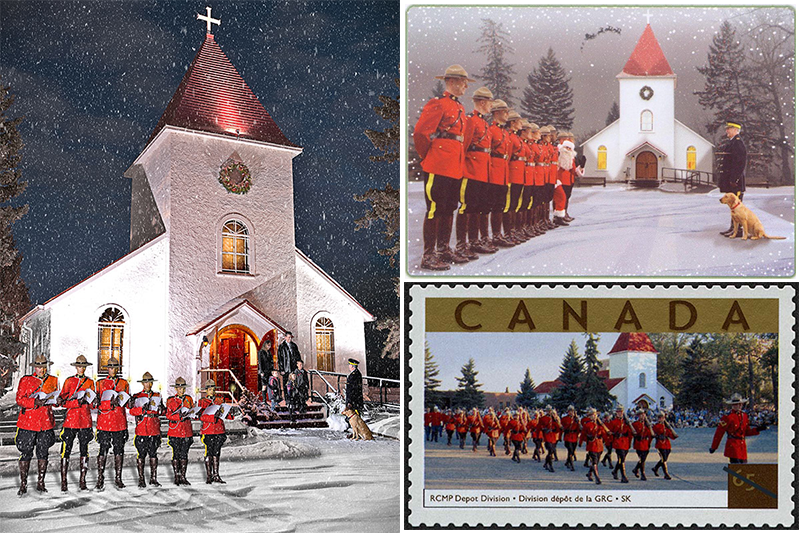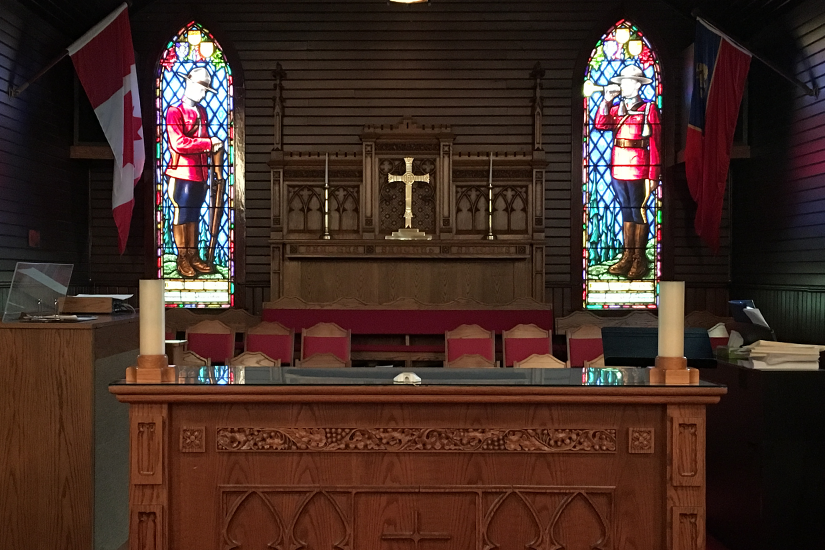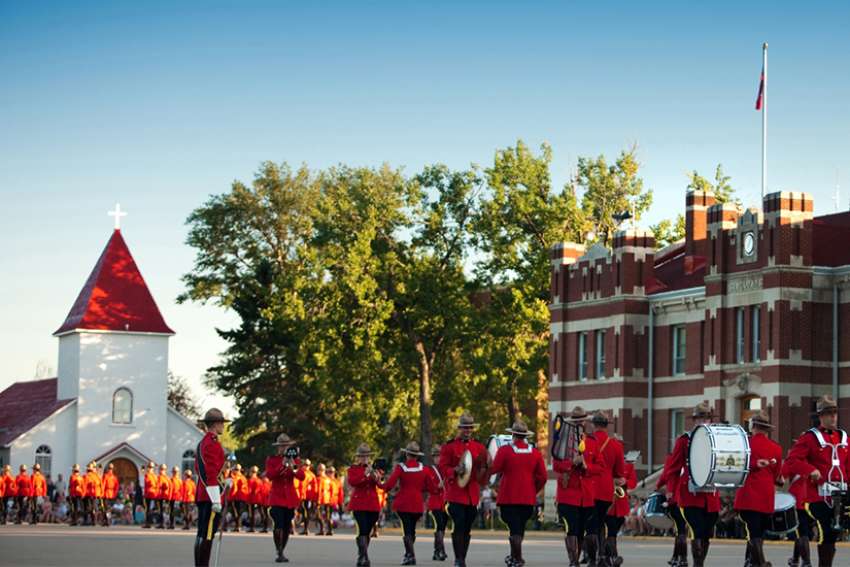The chapel, in the heart of Depot Division at the RCMP Academy where all cadets get their training for Canada’s national police service, is the oldest building in Saskatchewan’s capital. And it remains to this day a functioning chapel where services are held. A recent Saturday saw three weddings celebrated there as well as a funeral, said Capt. Jean Morisset, chaplain of the RCMP and a Pentecostal minister. It also hosts almost weekly graduations of officers from each 32-member “troop” of cadets enrolled at the Academy.
It may not have the history of St. Peter’s Basilica in the Vatican, which has stood for 500 years, or Notre-Dame de Paris, with its origins dating back to 1163 when construction began on the medieval cathedral. Still, the chapel dates back to 1883 — when it was built as a msess hall for the then-North-West Mounted Police (forerunner to the RCMP) before serving as a canteen and reading room, and then converted to a chapel a decade later — just as Regina was shaking off its original name, Pile of Bones (or Wascana in Cree), and renamed in honour of Queen Victoria. Within two decades the city would be named the capital of Saskatchewan, in 1906, a year after the province joined Confederation.
Originally, the chapel was an Anglican parish, as in early days of the RCMP most members were Anglican or Catholic. Catholics, Morisset said, were served by a nearby parish. Today, services in the chapel have a distinctly ecumenical flavour, as since 1974 it was decreed that the RCMP, as part of the federal government, could not promote one faith over another. There are exceptions, however, with monthly Catholic and Evangelical services.
Certain histories also say the mess hall that eventually became the chapel was used as a guardhouse, and counts among its early prisoners Louis Riel, the Metis leader and former Member of Parliament who went on trial in Regina for his role in the 1885 Northwest Rebellion. He was hanged for treason in the division’s public gallows on Nov. 16, 1885. But Morisset says the story is not quite right. The guardhouse was in a separate building — what is now C Block — just east of the chapel.
The chapel — also known as Building 13 and the Chapel Mess Hall — is a classified federal heritage building due to its historical association with the early presence of the RCMP in Regina. It was built when Canada’s west was still frontier land — Rupert’s Land officially, soon to be renamed the Northwest Territories after Canada purchased the land from the Hudson’s Bay Company.
 The RCMP chapel is illustrated in art and a postage stamp.
The RCMP chapel is illustrated in art and a postage stamp.
The chapel originated in Ontario, where it was built in sections and shipped by flat car on the new Canadian Pacific Railway line, steamer and ox team to Regina where it was assembled.
In 1895, the building was partially destroyed by a fire. After its restoration, the wife of commissioner Lawrence Herchmer suggested the building become a chapel. The first service was held on Dec. 6, 1895.
The chapel stands out among the brick buildings where cadets are housed and take courses to prepare them for life as an RCMP constable. The solid craftsmanship of the wooden structure is evident to all who see it, with its small massing with gabled roof and steepled tower on the north side (the steeple was added in 1939, designed and constructed by Depot Division staff). Its centrally placed arched doorway on the main facade welcomes visitors into a humbly restored interior with rustic wooden pews (some are original), dedicated stained-glass windows and many memorial plaques.
 The stained glass art behind the altar at the RCMP chapel signifies the hope of glory and the hope of resurrection. (Photo by Mickey Conlon)
The stained glass art behind the altar at the RCMP chapel signifies the hope of glory and the hope of resurrection. (Photo by Mickey Conlon)
The stained glass stands out, particularly the panels behind the altar. These were donated by the three Maritime provinces during the early 1940s when the Second World War was raging (before Newfoundland and Labrador entered Confederation). Eight RCMP officers from the region had lost their lives and the provinces wanted to commemorate them with metal plaques. But all metal was conscripted to the war effort, so something else had to be found.
“They were not able to purchase a plaque so they chose to erect those stained-glass windows instead,” said Morisset.
On the left side stands a Mountie in mourning, and at the bottom of the glass a quote from Matthew 5:4, “For they shall be comforted.” On the opposite side is the same Mountie playing “Revelry” on trumpet, with 1 Corinthians 15:52, “For the trumpet shall sound.” It signifies the end of the day but the beginning of a new one and the readiness to serve.
“The hope of glory and the hope of resurrection is signified in and through that stained-glass window,” said Morisset.
The 238 RCMP officers who have died in the line of duty are also commemorated in the chapel’s cenotaph.
The chapel remains a focus of Depot Division, situated across from Barracks Square where roll call and inspection of the troops under the watchful eye of the Sergeant Major takes place daily. It is also an integral part of daily tours for visitors to the RCMP Heritage Centre.


